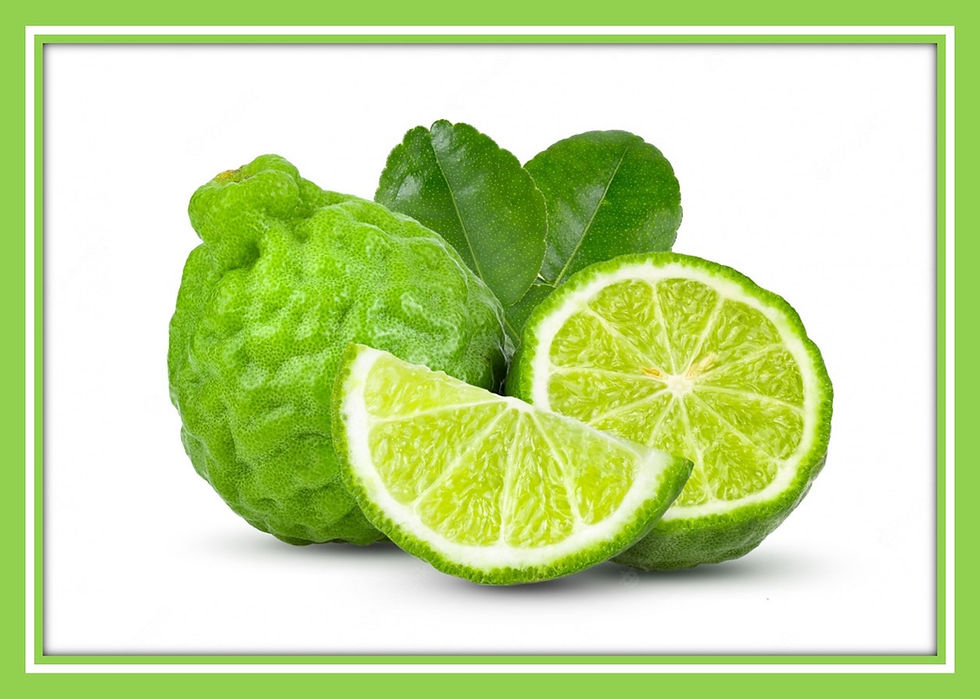What about some Earl Grey, ladies?
- Carina Falck
- Jun 11, 2023
- 2 min read
Bergamot (Citrus aurantium ssp. bergamia)

Bergamot is part of the citrus genus, and is, like oranges and lemon, a result of cultivation. Bergamot is a hybrid of bitter orange and lemon, but the fruit is not really edible, since it is extremely bitter and sour. The essential oil is made of the skin of the bergamot fruit.
The oil is very highly valued in the perfume industry, with many good colognes having it as an ingredient.
Bergamot oil is also the origin of the exquisite taste of Earl Grey tea.
Bergamot’s smell is reminiscent of flowers, although the oil is made from the fruit’s skin.
It has an uplifting yet calming effect and is very good for those that lose their appetite due to stress. (Drinking some Earl grey tea after a big meal is actually quite helpful to assist with digestion).
The oil also helps with flatulence and indigestion.
Bergamot gives a feeling of cooling the emotions and restoring and calming the nerves. It helps to get energy flowing again.
Bergamot is very helpful in dealing with anger that has not been expressed. Lavender and bergamot both help to release pent-up emotions.
Feelings that are not expressed, often lead to depression, sleeplessness, sudden mood swings and anxiety. Bergamot could also assist with grief.
A combination of bergamot, rosemary and lemongrass or verbena is mentally stimulating and refreshing and uplifting.
Combined with jasmine and ylang ylang, bergamot is strengthening on the physical level, e.g., when recovering from illness.
When used with juniper berry and Swiss pine, it is more medicinal.
One author – Rovesti - says that bergamot could help people that would like to stop smoking.
A mixture of lavender, bergamot and tea tree oils inhibits cold sores. To help relief urinary tract infections, about 3 drops of oil could be added to a bath and used as a local wash.
Natural affinity.
People with a lighter and joyful approach to life seem to like bergamot instinctively.
Bergamot people are also often those that care, are considerate and full of energy.
Remember that you can trust your nose very much when buying essential oils. One seems to enjoy and almost crave the smell of the oils that you need most.
It is therefore very valuable that a variety of oils are for example good for anxiety – you do not have to put up with one that you dislike.
Where are these trees found?
Reggio di Calabria at the tip of Italy’s boot is the only place in the world where bergamot trees really are successfully cultivated. Some interesting facts:
Our noses prefer layers of smell to one smell. If your brain finds a smell interesting, it seems to have a better psychological impact.
Bergamot is a good oil to use if you need an oil for a certain treatment, but do not really like the smell. It will for example mask cypress, frankincense, and pine very well.
Sources:
Battaglia, S.
The complete guide to aromatherapy, 2 nd edition.
The International Centre of Holistic Aromatherapy, Brisbane, Australia, 2003
P261-262
Fischer-Rizzi, S.
Complete Aromatherapy Handbook, English Edition 1990.
Sterling publishing Company Inc. New York USA. pp 70 - 76.
Contact: Carina Falck 060 526 1422
Disclaimer
The use of essential oils must be done responsibly and does not replace any medical treatment. It is used at your own risk.





Comments